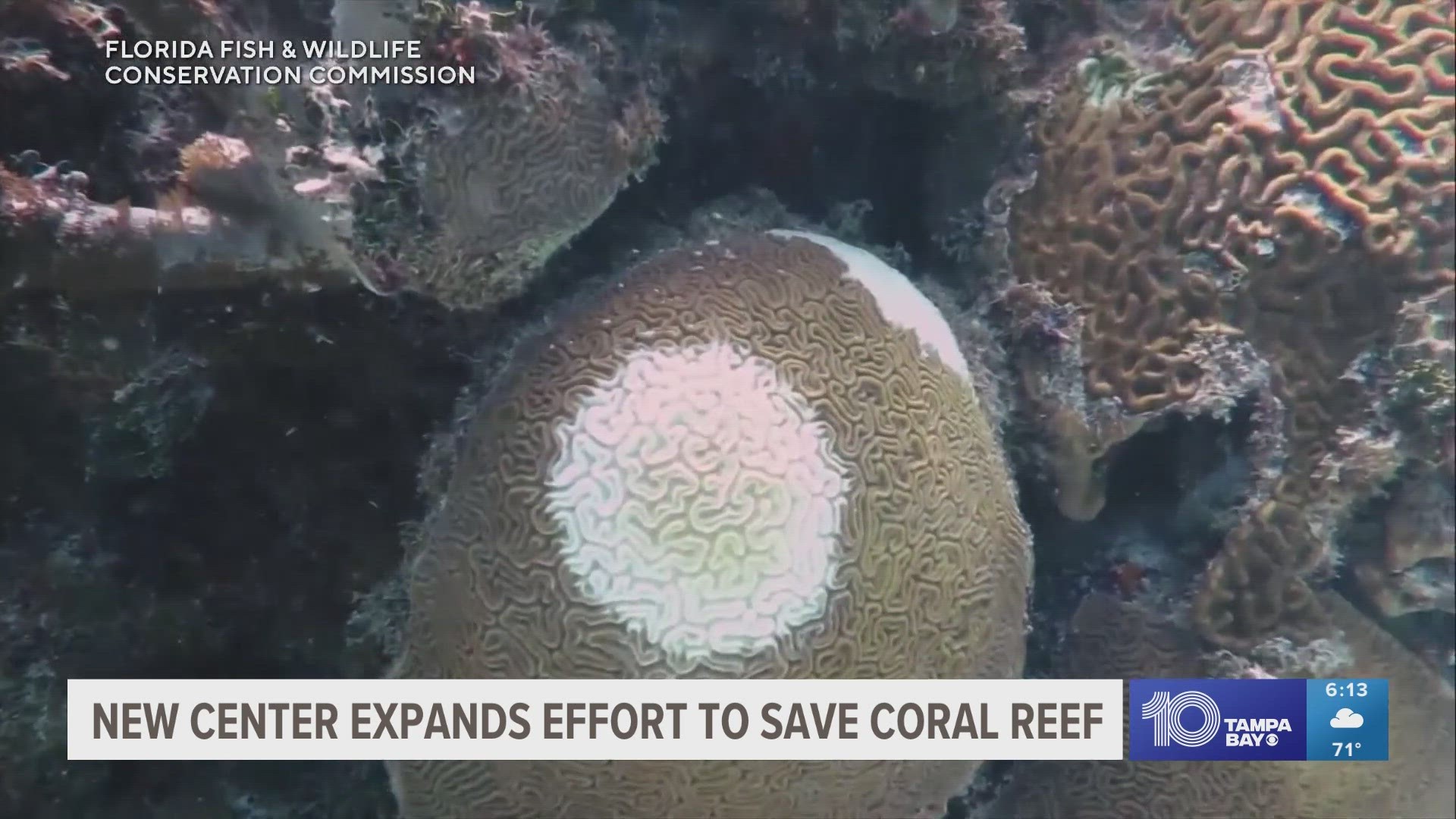APOLLO BEACH, Fla. — As Florida’s coral reefs face significant losses from disease and rising water temperatures, scientists in the Tampa Bay area are on the cutting edge of saving the invaluable organisms from extinction.
On Friday, The Florida Aquarium cut the ribbon on its brand-new Coral Conservation and Research Center, a 4200-square-foot facility on its Apollo Beach campus.
“The ultimate goal for this center is to prevent coral species from going extinct,” Keri O’Neil, a senior scientist and director of the center, said. “This building really just opened up endless research opportunities into coral reproduction and health and how they're growing and surviving.”
Consider it a coral breeding program where researchers can spawn more than a dozen species of coral, something O’Neil says wasn’t even possible just a few years ago. Now their efforts are expanding at a crucial time for corals off the coast and across the planet.
“Florida's coral reef has been declining for decades, but the last few years have been extraordinarily difficult. We've had a very large disease outbreak that affects over 22 different species. And then we had last summer, which was the warmest marine heatwave on record,” O’Neil explained.
When corals are in trouble, that means just about everything else in the ocean is as well. Coral reefs help enhance water quality and provide habitat to 25% of all marine life.
“Coral reefs are the rainforest of the sea,” Roger Germann, the president and CEO of The Florida Aquarium, said. “You can live here in Tampa Bay looking out in the Gulf, see animals, and they are interdependent on what happens, several 100 miles away at the reef tract.”
Coral also has a multi-billion-dollar impact on our economy, providing recreation, tourism, seafood and even coastal protection to homes and beaches.
“Because we don't see them every day, it's easy to be out of sight and taken for granted. But they are super important not only again for the way of life down in the Keys in southern Florida, but really the entire state,” Germann added.
It’s why the work they will do in their new center is so vital.
“This is leading-edge science happening right here in Tampa Bay. And I think we should take pride in that,” Germann said. “Everything that we do, our team will have a positive impact on decades and really millennia to come.”
Efforts to restore coral in Florida have ramped up in recent years, attracting funding from both state and federal agencies.
Both private donors, aquarium ticket sales and funding from the legislature helped make the center a reality.
“Coral has a symbiotic relationship and with that they depend on so many things around, who knew that they could be depending on a little institution in Tampa Bay for their very existence,” said State Rep. Toby Overdorf (R-St. Lucie). “I applaud the aquarium for recognizing the opportunities now to bring that back to the wild and to literally take what has been failing.”
On Friday, Governor DeSantis also announced millions in state investment to work on saving Florida reefs, including $2.1 million to support the Florida Aquarium program for years to come.

